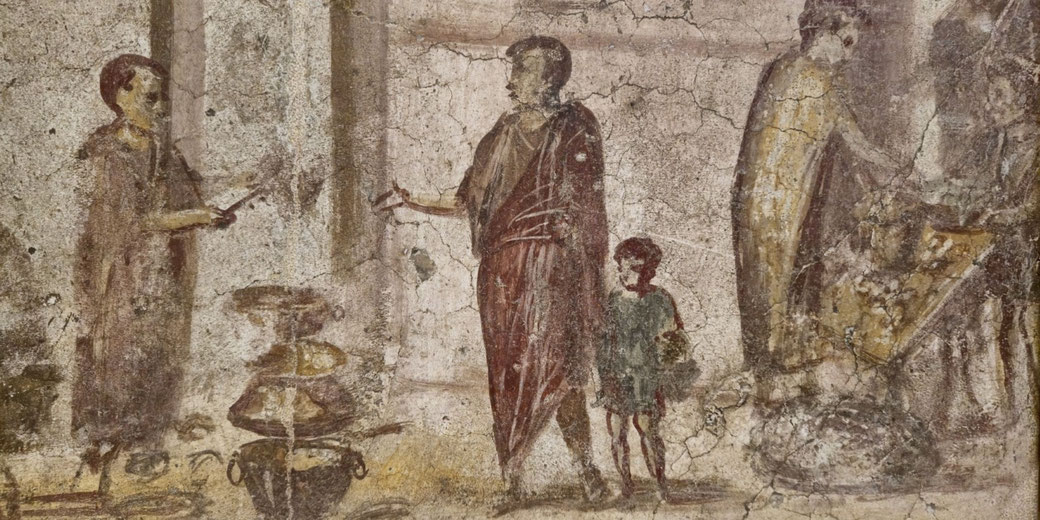What was ancient Roman society like?

The ancient Roman society, one of the most impressive civilizations in history, was a sophisticated web of intricate social structures and dynamic cultural innovations that governed its existence for over a thousand years (753 BC - 476 AD).
From the humble origins of a small town on the banks of the Tiber River, Rome expanded into an empire encompassing much of Europe, North Africa, and the Near East, establishing itself as a beacon of law, engineering, military might, and governance.
Social structures
Roman society was deeply hierarchical with clear divisions between social classes.
At the apex stood the Patricians, a group of aristocratic families who traditionally held the highest political, religious, and military positions.
The Equestrians (or Equites) originally composed of wealthy non-patrician citizens whose main qualification was their ability to afford a horse for military service.
Over time, this class became an influential force in business and administration.
The Plebeians represented the common citizens in Rome, including artisans, merchants, farmers, and laborers.
While they initially had limited rights and political influence, they gradually secured more privileges, including the ability to hold the political office, following the Conflict of the Orders in the 5th-3th centuries BC.
Slaves were an unfortunate, yet integral, part of Roman society. They were acquired through conquests and performed all manner of work, from household chores to manual labor in the mines and fields.
Although their lives were constantly filled with hardships, there were avenues for slaves to gain their freedom.
In addition to these main classes, foreigners and freed slaves (Liberti) also played notable roles in Roman society.
Roman law and citizenship
Roman law was one of the most enduring legacies of Roman society, forming the basis for much of the Western legal tradition.
It was remarkably sophisticated, addressing a wide range of civil matters such as property rights, contracts, and family law.
Citizenship was highly coveted in ancient Rome as it conferred a host of privileges, including voting rights, legal protection, and the right to hold public office.
The extension of citizenship to non-Romans played a significant role in the empire's expansion and cohesion.
In a landmark move, the Edict of Caracalla in 212 AD granted Roman citizenship to all free men within the empire.

The role of religion
Religion was a key part of Roman life, influencing every aspect from politics to daily routines.
The Roman pantheon was populated by a plethora of deities, each overseeing different aspects of life and the cosmos.
The state religion, overseen by the Pontifex Maximus (a title later adopted by the Pope), conducted public rituals and ceremonies to seek the favor of these gods.
As the empire expanded, it encountered and absorbed foreign deities and religious practices, a testament to its cultural adaptability.
This open approach, however, was challenged by the rise of Christianity, which advocated exclusivity of worship.
Eventually, under Emperor Constantine, Christianity was legalized, and it became the state religion by the end of the 4th century AD.
Family and gender roles
Family was the fundamental social unit in ancient Rome, headed by the paterfamilias, usually the eldest living male, who wielded significant authority over the family.
Roman women, though under the authority of the paterfamilias or their husbands, enjoyed more freedoms and legal rights compared to their Greek counterparts.
Women could own and inherit property, and a form of marriage called "sine manu" allowed them to remain under the legal authority of their father instead of their husband.
Over time, Roman matrons, especially those from influential families, could wield considerable social and even political influence.
The societal edifice of ancient Rome, though seemingly rigid, was dynamic, mirroring the adaptability and pragmatism that allowed Rome to build an empire that lasted for centuries.
From their structured social classes to the complex legal systems, religious practices, and evolving family roles, Roman society's intricacies continue to offer compelling insights into the workings of one of history's most notable civilizations.
What do you need help with?
Download ready-to-use digital learning resources
Copyright © History Skills 2014-2025.
Contact via email
With the exception of links to external sites, some historical sources and extracts from specific publications, all content on this website is copyrighted by History Skills. This content may not be copied, republished or redistributed without written permission from the website creator. Please use the Contact page to obtain relevant permission.





